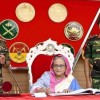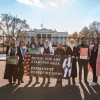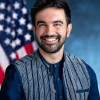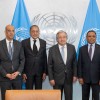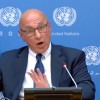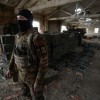Understanding the Military Coup in Myanmar, Two Years Later

HONOLULU (March 15, 2023) --- Last month marked the second anniversary of the military coup in Myanmar that has resulted in the country's devastating civil war, with the military arresting more than 20,000 anti-coup protestors, killing more than 3,000, and burning 55,000 houses and buildings to date.
What was shocking about the coup was that almost no one on the other side seemed to expect it until the last few months before it happened. Throughout the prior decade of reform, the main point of contention among many lawmakers, political analysts, and activists was that "the military had enough power under the 2008 constitution, so why would they need to seize power in a risky coup?"
Coup motivations
In short, the coup was motivated by both personal and institutional factors. Institutionally, the military was losing power under democratic reforms even though the political system was rigged heavily in its favor. This in turn threatened the system of military-owned business monopolies that have enriched generals and their cronies for generations.
The military establishment initially attempted through various means to slow the pace of political liberalization, but it was the Rohingya genocide that really shifted Myanmar's trajectory. The military’s clearance operation against Rohingya Muslims beginning in 2017 resulted in violence that killed at least 9,000 people and forced nearly a million to flee the country, according to The New York Times. Little is known about the military's intentions, but it seems clear that the primary objective was to play a greater role in Myanmar's politics by inflaming ethno-religious strife.
Commander-in-Chief—and later coup leader—Senior Gen. Min Aung Hlaing did not seem to expect that demands for international justice over the Rohignya tragedy would target him so personally. In addition, he was worried about having to relinquish power as a result of Aung San Suu Kyi's unwillingness to raise his mandatory retirement age.
After the NLD won another landslide victory in 2020, the military resorted to allegations of voter fraud. Finally, when the NLD still refused to accept the military's efforts to retain its power advantages, Min Aung Hlaing orchestrated the coup on Feb. 1, 2021.

NLD and Western miscalculations
Aung San Suu Kyi's administration, which probably underestimated the real prospect of a coup, has faced widespread criticism for failing to prepare for a counter-coup. And policymakers in the West were also too quick to celebrate Myanmar's previous political transition as a partial victory for their foreign policy.
In fact, the reform period was never intended to end military domination. It was rather a masterpiece of former dictator Than Shwe's retirement plan. But the coup clearly reflects the military’s dissatisfaction even with its own 2008 constitution, which reserves 25 percent of parliament seats for active military personnel and allows the military commander-in-chief to independently hold the key Defense, Border Affairs, and Home Affairs ministries.
Since Min Aung Hlaing refuses to engage in dialogue with opposition parties, as required by the five-point ASEAN consensus he agreed to in 2021, holding superficially open elections are his government's best prospect for escaping the ongoing conflict and attempting to gain some degree of international legitimacy. But now, two years after the coup, the regime has again extended its state of emergency and imposed martial law in 37 additional townships, once again putting off the election. This step reveals nothing more than the generals’ unquenchable desire for even greater authority than they previously possessed.
Lian Bawi Thang is a PhD student in political science at the University of Hawai‘i at Mānoa, and an East-West Center degree fellow. Follow @Lianbawithang.
The viewpoints expressed by the authors do not necessarily reflect the opinions, viewpoints and editorial policies of Muslim News Network.














